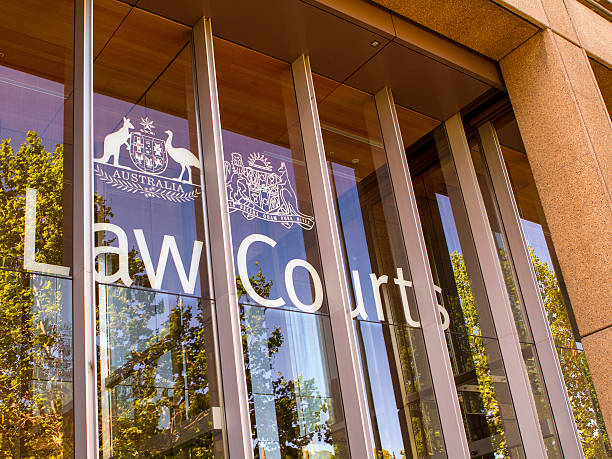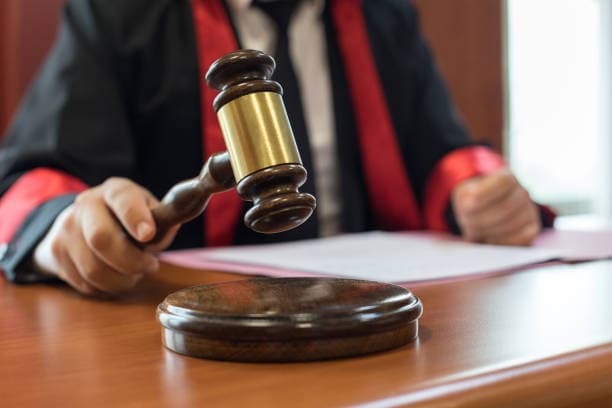In the Australian legal system, a principle known as “stare decisis” has the power to shape the course of justice. It also increases reliance on judicial decisions and adds to the actual and perceived integrity of the judicial process. At its core, stare decisis reflects the idea that the law should be predictable and consistent.
Furthermore, it ensures that the system treats similar cases in the same manner, and that the law is not subject to the whims of individual judges. For instance, the Supreme Court tends to follow precedent unless it becomes too challenging for lower courts to apply.
On the other hand, vertical stare decisis mandates lower courts to strictly adhere to the decisions made by higher courts within the same jurisdiction. In the UK, under the doctrine of stare decisis, the decisions of the superior court is binding on judges.
But stare decisis is more than just a dry legal principle. It is an integral part of the Australian legal system. It has the power to:
- shape the outcome of cases,
- influence how lawyers argue their cases, and
- guide the development of the law over time.
In this article, we will explore the legal doctrine of stare decisis. In Australia, we refer to it more commonly the doctrine of precedent. We discuss its role in the justice system, exceptions, and some relevant case laws. We will examine its role in shaping how the judicial system serves justice in Australia.
So, let’s dive in and explore the power of precedent in the Australian legal system.
Horizontal Stare Decisis Vs Vertical Stare Decisis
A court that upholds the principle of horizontal stare decisis will generally abide by its own previous rulings. This will be the case unless there are exceptional circumstances. The lower courts need to obey precedent established by the appellate court for their jurisdiction, and all supreme court precedent.
An Overview of Stare Decisis
Stare decisis, which means “to stand by things decided,” refers to the utilisation of previous court decisions by judges while crafting their rulings. Case law defines it as the “doctrine under which a court is bound to follow previous decisions unless they are inconsistent with a higher court’s decision or wrong in law.”
This means that when a court faces a case involving an issue, it must follow the same legal principles applied in any previous case of the same nature.
But what’s the basis of this doctrine? Stare decisis is based on the idea that it is essential for the law to be applied consistently. If courts were allowed to ignore precedent, it would create uncertainty and confusion about what the law is. This could lead to injustice, as people would not know what to expect from the legal system.
What Is the Meaning of This Latin Term?
Stare decisis, more fully known as “stare rationibus decidendis” is a reminder for judges to ‘keep to the rationes decidendi (reason for deciding) of past cases.’ The ratio decidendi of a case is any rule of law that the local or supreme court judge says or implies is a necessary step in getting to his conclusion based on how he came to that conclusion or a necessary part of how he told the jury what to do.
Is the Doctrine of Stare Decisis Absolute?
No. The doctrine is not absolute. This is because courts can depart from precedent in certain circumstances. For instance, when the precedent is clearly wrong or when it would lead to an injustice. However, courts are reluctant to depart from precedent, as they want to ensure that they apply the law consistently.
The Role of Stare Decisis in Common Law Systems
What’s the relevance of this doctrine in Australia’s justice system or civil law system? Without the doctrine of precedent, the courts will decide each case on its own merits, regardless of how similar cases have been decided in the past. This could lead to much uncertainty and inconsistency in the law.
The purpose of stare decisis is to:
Ensure the application of law fair and consistent.
When courts are bound by precedent, they are less likely to make sudden or unpredictable changes to the law. This can be important in areas of law that are constantly evolving, such as commercial and environmental law.
Promote stability in the law.
When courts are bound by precedent, they aim to be consistent with previous rulings about cases with the same facts, issues, and circumstances. Moreover, stability helps ensure that the law is applied fairly and consistently and that people can reasonably expect how it will apply in their case.

Imagine This Scenario
For example, imagine that a court is deciding a case about whether a person can be sued for defamation for posting something negative about someone on social media. If there is no precedent to follow and honour, the court would have to decide the case based on the facts of that case alone.
This could mean that two people who post the same thing about the same person on social media could end up with different legal outcomes, depending on which court hears their case. Such a decision would be unfair and unpredictable. Moreover, it would make it difficult for businesses and individuals to know how the law applies to them.
In addition, the absence of a precedent could make it more difficult for the law to evolve in response to changing social and economic conditions. If courts are not bound by precedent, they may be less likely to make changes to the law, even if those changes are necessary to reflect the changing needs of society.
Exceptions to Stare Decisis
The doctrine of precedent is not absolute. The Court can also decide not to follow the precedent because of the following reasons:
Manifest Wrong or Fundamental Error
A manifest wrong is a decision clearly incorrect or based on an error of law. A fundamental error is an error that goes to the heart of the decision and that undermines its validity.
In Australia, the High Court of Australia has held that a court can depart from a precedent if it finds that it is manifestly wrong or contains a fundamental error. However, the High Court has also held that courts should be reluctant to depart from precedent and that they should only do so in exceptional circumstances.
Overruling a precedent to avoid injustice.
A court can overrule a previous decision if it believes that it was wrong or would lead to an injustice. This is a rare occurrence, but it can happen in cases where the precedent is no longer relevant.
Different facts and circumstances.
The court may distinguish a previous decision if it finds that the facts of the current case are sufficiently different from those of the previous case. Through such distinction, the court can find that the precedent does not apply to the current case, even if the legal issues are similar.
Case Law on Stare Decisis
To sufficiently illustrate the concept of this doctrine, here are some cases that establish the doctrine and how the court used it to decide the cases:
Mabo v Queensland (No 2) (1992) 175 CLR 1
Mabo’s case overturned the terra nullius doctrine, which held that Australia was legally unoccupied by Indigenous peoples at the time of British settlement. The High Court ruled that Indigenous peoples had a legal right to land and that the Australian legal system could recognise this right.
Attorney-General (NSW) v Perpetual Trustee Co Ltd (1952) 85 CLR 237
This case established that the High Court is not strictly bound by its own decisions. The High Court ruled that it could depart from a previous decision if it was satisfied that it was wrong in law or would lead to injustice.
Jones v Commonwealth (1987) 71 ALR 497
The Jones case considered the circumstances in which a court could depart from a precedent decided by a lower court. The High Court ruled that a higher court could depart from a lower court’s decision if it believed that the lower court had made an error of law or that the decision was no longer good law.
Trident General Insurance Co Ltd v McNiece Bros Pty Ltd (1988) 165 CLR 107
The case of Trident considered the factors that a court should consider when deciding whether to depart from a precedent. The High Court ruled that a court should consider the following factors:
- The importance of the precedent.
- The extent to which other courts have followed the precedent.
- The reasons for the precedent.
- The circumstances changed since the previous court decided the precedent.
- The impact of overruling the precedent on the administration of justice.

Need Help in Enforcing the Stare Decisis Doctrine?
If you are facing a legal issue involving this doctrine, seeking legal help from an experienced lawyer is vital. Our lawyers at JB Solicitors can help you understand how the doctrine works, how it applies to your case, and what legal options are available.
One of the key benefits of working with JB Solicitors is that we can help you navigate the complex legal system in Australia. We can also guide you on the best approach to take in your case and represent you in the local court, federal court, or supreme court if necessary. We can also help you submit an appeal in the appeals court or state appellate courts if you want to challenge court decisions if necessary and applicable.
Submit an enquiry today to know more about stare decisis.
